Dental Implants – Burke, VA
The Closest Alternative
to Your Natural Teeth
According to the Centers for Disease Control and Prevention, an estimated 170 million adults are missing at least one tooth, while 40 million are missing all of their teeth. If you’ve been struggling with gaps in your smile that have impacted your confidence and ability to complete basic daily tasks like eating and speaking, our team at Northern Virginia Oral, Maxillofacial & Implant Surgery can help rebuild your grin with lifelike replacement teeth that mimic Mother Nature. Schedule a consultation for dental implants in Burke today to learn more!
Why Choose Northern Virginia Oral, Maxillofacial & Implant Surgery for Dental Implants?
-
Team of 5
Exceptional Oral Surgeons -
Top Referral for
Local Doctors & Dentists -
We Accept Dental
& Medical Insurance
What Are
Dental Implants?

Dental implants themselves are small titanium posts that are surgically inserted below the gumline and into the jawbone to replace the root structure of missing teeth. Due to their biocompatibility, they can naturally fuse with the jawbone the following three to six months after placement, allowing them to keep the bone from deteriorating with time by providing it with necessary blood flow. Once this has occurred, abutments, which are small metal connector pieces, can be attached to the implants that will hold the prosthetic in place.
Partners with
Your Dentist

Our team of oral surgeons partners with local dentists to place and restore dental implants in Burke. This team-based approach allows the treatment to continue being overseen by your trusted dentist, all while reaping the benefits of having crucial parts of the procedure, like the dental implant surgery, be completed by skilled, trained specialists. Your dentist will also provide our oral surgeons with crucial information about your medical and oral health histories so we can ensure the procedure is smooth and yields the best results.
Are You a Good Candidate for Dental Implants?

The best way to determine whether you’re a good candidate for dental implants is to schedule a consultation with either our team of surgeons or your general dentist. From there, your provider, along with our team, will be able to outline a detailed treatment plan for you, which may include any of the following paths to smile restoration:
Missing Single Tooth

For one missing tooth, we can secure a single dental implant below the gumline and into the jawbone. This will restore the root structure of the tooth and allow your general dentist to attach a free-standing crown to the implant to fill the gap within your arch.
Missing Multiple Teeth

Instead of needing to alter your existing, natural teeth to support a traditional bridge, we can place two dental implants at either edge of the gap in your smile. These will anchor the bridge into place to fill the gap left by consecutive missing teeth.
Missing All of Your Teeth

Our team can provide All-on-4 implant dentures or traditional implant dentures based on your treatment plan and oral health history. All-on-4 allows us to anchor a complete denture the same day we place four implants in the most supportive parts of the jawbone. Traditional implant dentures will allot time within your treatment plan for osseointegration to complete before attaching your final dentures.
Learn More About All-on-4 Dental Implants Learn More About Implant Dentures
The 4-Step Dental Implant Process
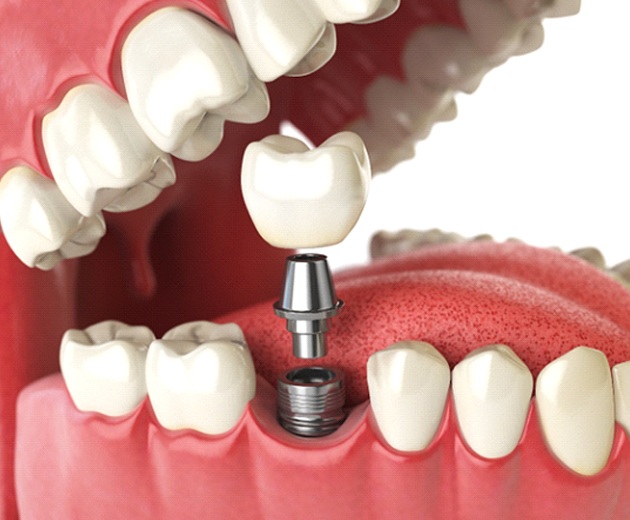
To get dental implants, a patient must undergo a unique and multi-step process. This series of actions spans months at a time. Even so, implants' perks are worth the time and effort. Our team ensures quality results by doing the whole placement in-house. That way, you can benefit from our qualified oral surgeons’ skills and advanced training. They’ll make your implants great via four major steps: consultation, surgery, osseointegration, and delivery of the final restoration(s).
Initial Dental Implant Consultation

Before the actual surgery, you’ll first consult our oral surgeons. Doing so lets them learn your smile goals, dental history, and health background. Once they’ve learned these things, they can settle whether you qualify for implants and tailor treatment to suit you.
If you aren’t a good implant candidate (at first), our office can still help. We’ll work with you on preliminary dental work, from bone grafts to tooth extractions. From there, your mouth will have the support it needs to handle implants.
Should our surgeons approve treatment, the initial consult will outline the implant process. This guidance includes details on the procedure’s timeline, cost, and similar factors.
Dental Implant Surgery

As stated before, our office places implants in-house. We won’t refer you to outside specialists. (However, we will partner with local dentists for the surgery.) With this approach, you don’t have to travel out of your way for smile restoration. Our team will handle everything and make your grin pretty and full again.
In particular, the surgery will involve:
- Anesthesia – Before placement, our surgeons will numb your mouth with an anesthetic. This drug will keep you from feeling pain during surgery. At most, you’ll sense a slight pressure as the procedure progresses.
- A Minor Incision – After numbing the treatment site, the team makes a minor incision in your gums. The resulting cut makes space for your future implant(s).
- Implant Placement – With the incision made, our surgeons will place your implant in the proper jaw socket. They’ll use advanced methods and tools to do so.
- Gum Closure – The gum incision will be closed following placement. Afterward, our team will put a small cap over the implant post.
Dental Implant Osseointegration & Abutment

During your recovery from surgery, your implant(s) will slowly fuse with your jawbone. This process is called osseointegration and takes roughly six months. When it’s over, your implant will be secure and as stable as your other teeth.
Following implant fusion, you’ll undergo surgery that places your abutment. The latter is a connector that holds your implant’s tooth-like portion. While you adjust to it, the final restoration will be crafted from prior dental impressions.
Delivery of Dental Implant Restoration(s)

For the last bit of implant treatment, we’ll place the final restoration in your mouth. This prosthetic might be a crown, bridge, or denture. (The type will depend on how many teeth you’ve lost.)
Luckily, fitting your final restoration won’t take long. All our surgeons have to do is apply some dental cement. Once that’s done, you can delight in your restored smile!
Benefits of Dental Implants

Each year, over 500,000 people choose dental implants for their unique benefits. We proudly offer this outstanding tooth replacement option, enhancing both the smiles and the lives of our patients. Unlike traditional methods like dental bridges and dentures, implants look and feel just like natural teeth. Continue reading to learn more about the incredible benefits of dental implants in Burke.
Day-to-Day Benefits

- Enjoy Your Favorite Foods – With dental implants, breaking down tough and crunchy foods feels completely natural. Whether you're enjoying steak, apples, nuts, or other foods, implants make eating easy.
- Easy Maintenance at Home – Brushing and flossing dental implants is as simple and natural as cleaning your real teeth. There's no need to remove a denture to keep your mouth free of plaque and food debris.
- Improved Speech and Confidence – Dental implants are securely anchored, allowing you to speak confidently without worrying about your tooth replacement slipping. Enjoy the ability to smile and speak with assurance, knowing your teeth are firmly in place.
Health Benefits

- Preserve Bone Health – Dental implants are the only tooth replacement that stimulates the jawbone, preventing deterioration after tooth loss. This allows you to maintain a healthier and more youthful facial appearance while preserving your remaining teeth.
- Better Dental Health – Teeth depend on each other to stay healthy and properly aligned. Even one missing tooth can shift your smile out of place. Dental implants fill in the gaps, keeping your teeth straight and promoting better oral health, reducing the risk of tooth decay and gum disease.
- Improve Mental Health – Many patients hide their smile due to missing teeth and gaps can significantly lower your confidence. Fortunately, dental implants empower you to eat, speak, and smile confidently in any social or professional setting.
Long-Term Benefits

- Maintain a Youthful Appearance – Dental implants offer more than just a restored smile! They also significantly enhance your facial aesthetics. By improving blood flow to the face, implants help prevent facial sagging and cheek hollowing.
- Lifespan of 35+ Years – Dental implants are the only tooth replacement option that can last several decades, even a lifetime. Unlike standard bridges and dentures, implants use posts to replace teeth, ensuring long-term durability.
- Proven Safety and Reliability – Dental implants have an impressive success rate of 95%, and in some cases, up to 98%. This makes them an extremely reliable and safe choice for tooth replacement, especially when placed by a professional!
Understanding the Cost of Dental Implants

The cost of dental implants in Burke will depend on a variety of factors, including how many dental implants you need to have placed, the type of prosthetic you need, whether you require preparatory procedures, and if you receive sedation or anesthesia. Your general dentist should provide you with a thorough cost estimate of your overall procedure during your consultation, and our team will give you one that outlines all surgical-related costs. We’re happy to file claims with your medical or dental insurance and help you save from out-of-pocket expenses.
Preliminary Treatments Before Dental Implant Surgery

In some cases, patients may need preparatory procedures before they can undergo dental implant surgery, such as a bone graft, sinus lift, or ridge expansion. Each of these treatments will incur their own separate costs, ultimately affecting the overall price tag of the process.
These procedures help improve jawbone density and adjust the placement of the sinuses to minimize post-operative complications and ensure the successful integration of the dental implants with your jawbone.
Factors That Affect the Cost of Dental Implants

There are a few different factors that play a role in determining the overall cost of your dental implant treatment in Burke. These include:
- How Many Dental Implants You Need: The more dental implants you need surgically placed, the higher the cost of treatment.
- Type of Restoration: Larger restorations, like dentures, will have a higher cost than smaller ones like crowns.
- Materials Used: Dental implants and restorations can be made from a number of different materials, which can influence treatment cost.
Choosing Dental Implants Can Help You Save in the Long-Run

Although dental implants require you to pay more up front than traditional dentures and bridges, they offer a number of long-term benefits that make them ultimately less costly. For example, their lifespan of 30+ years with good dental hygiene allows for fewer trips to the dentist’s office and replacements.
Does Dental Insurance Cover Dental Implants

In most cases, dental insurance plans don’t cover the cost of getting dental implants. However, some insurance plans may cover the cost of the restoration or other parts of your treatment. Our team at Northern Virginia Oral, Maxillofacial & Implant Surgery can help you save by filing claims on your behalf to maximize your savings. We’re also in-network with most major insurance plans in the area, providing you with even lower fees!
Other Ways to Make Dental Implants More Affordable

If you’re uninsured or your out-of-pocket expenses are high, our office offers additional flexible ways to pay and save as well. We provide all of our patients considering getting dental implants with complimentary consultations. We also work with CareCredit, a trusted third-party financier, so you can make low monthly payments on your treatment instead of having to pay a large sum up-front. CareCredit also offers low-to-no interest and allows you to choose between 12, 24, and 36-month payment plans.
Advanced Dental Implant Procedures
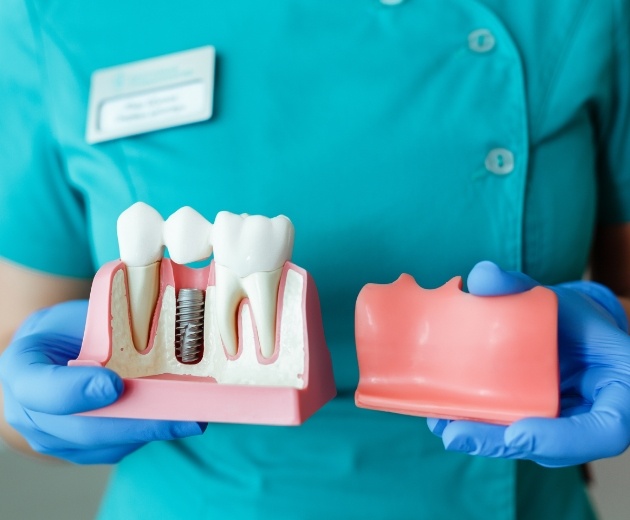
Sometimes, a patient’s jaw isn’t well enough to support implants. Issues with its density and position can prevent effective treatment. However, there are ways to work around this scenario. You could always get an advanced dental implant procedure in Burke! Whether a bone graft or a sinus lift, it would ensure your new teeth last a lifetime. As for the details, our office is happy to tell you more. Just keep reading, or call us today!
Bone Grafting
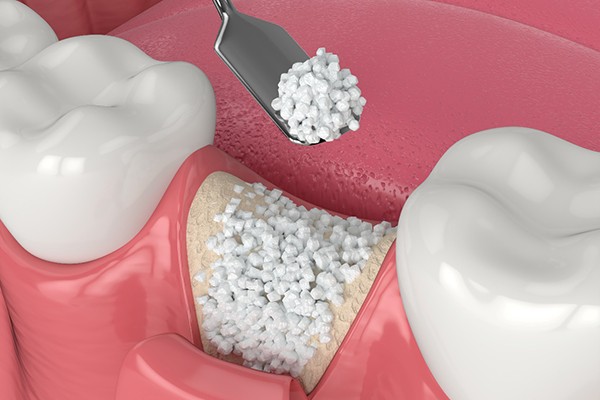
If you don’t already know, tooth loss erodes your jawbone. Such erosion may weaken your jaw until it can’t support implants. However, you could fix this problem with a bone graft.
Put simply, a bone graft is a type of oral surgery. It grafts tissue (from elsewhere in your body or a donor) onto your jawbone. In doing so, it strengthens your jaw by increasing its volume and density. Your body could then handle dental implants.
Admittedly, recovering from a bone graft takes a while. Most patients need three to nine months. Still, the grafting can be vital for your implants’ longevity.
Sinus Lift
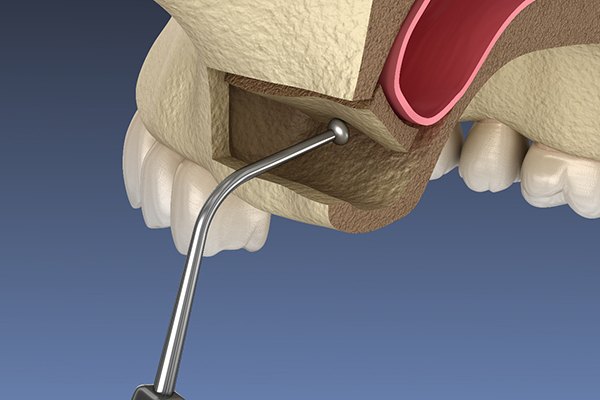
At times, the upper jaw can interfere with implant work. It may lack the proper bone height or cause your sinuses to get too close. In such cases, you should consider a sinus lift.
A sinus lift is a unique type of bone grafting. In particular, it adds bone to the space between your molars and premolars. To do so, though, requires moving the sinus membrane upward. (Hence the procedure’s name.)
Generally, sinus lift recovery takes four to nine months. Once it’s over, implants can be placed.
PRP/PRF Treatment
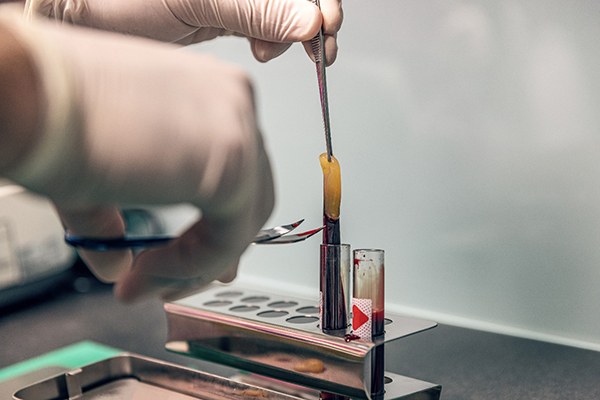
Many patients want to heal quickly and smoothly after implant surgery. After all, a fast recovery means they can enjoy their smile sooner. Luckily, PRP/PRF treatment could help things along.
Also known as platelet-rich plasma (or fibrin) therapy, this procedure helps you heal after dental surgeries. It uses concentrated blood plasma to stimulate your body’s regeneration. That way, you have a reduced need for strong painkillers and anti-inflammatories. You can also expect a lower risk of infection after the surgery.
Ridge Expansion
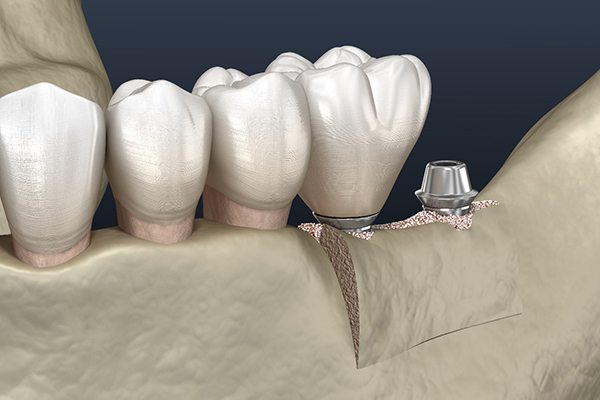
An eroding jawbone often loses some of its width. Should that happen, it may not be wide enough to support implants. Thankfully, a ridge expansion would resolve the problem.
Per its name, a ridge expansion widens part of your jawbone. It works by wedging apart the inner and outer segments of the ridge bone. In doing so, the procedure makes space for a future dental implant.
Typically, an oral surgeon uses special tools to perform a ridge expansion. Many will also put a patient under IV sedation to ensure smooth treatment.
Dental Implant Technology

Keeping up with the latest technology is what allows us to consistently bring our patients the best possible results. When it comes to dental implants, we take advantage of 3D cone beam imaging to plan the procedure, and we make use of surgical guides so that each implant post goes in precisely the right spot. Furthermore, with our digital impression system, we can ensure that your implant-supported restoration is the right shape and size. Read on for a more detailed look at how modern technology is used at our practice to enhance the dental implant process.
3D Cone Beam Imaging
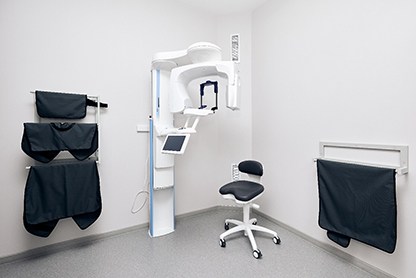
Dental implant surgery has to be planned very carefully; we need to confirm that there’s enough bone density in your jaw and narrow down precisely the best spots for the implant posts. To this end, we will use a cone beam computed tomography (or CBCT for short) scanner to create a model of your mouth and jaw that can be viewed from a variety of angles. This lets us see where crucial structures are located so that they can be accounted for during your dental implant surgery.
Why do we use a CBCT scanner instead of traditional X-rays for the dental implant procedure? Simply put, a normal X-ray simply wouldn’t capture as many details. CBCT scans are much more comprehensive, which makes all the difference when it comes to minimizing the risk of complications happening during your dental implant surgery. Rest assured that CBCT scans will not leave radiation in your body, and taking them does not involve any discomfort.
Guided Dental Implant Surgery
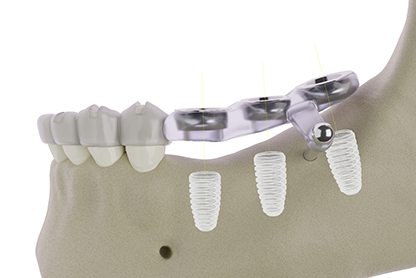
It’s not always easy to tell exactly where your dental implants need to go just by looking at your mouth, especially if an excessive number of teeth have been lost. As such, our team practices guided dental implant surgery. Simply put, we use a CBCT scan to design and create a surgical guide, which can give us a clear visual of the correct location for your dental implant posts.
The main benefit of a surgical guide is enhanced precision. Not only does this make it more likely that your dental implant surgery will ultimately be successful, but it can also make the treatment more comfortable as a whole. On top of that, being able to see exactly where the implants need to go often allows us to make smaller incisions, resulting in shorter healing times once the procedure is complete.
Digital Impression System

The final step of the dental implant process is to design the final crown, bridge, or denture so that it can be anchored to the dental implant post(s). The final restoration must be customized so that it looks natural and fits properly. As such, we use our state-of-the-art digital impression system to make a virtual model of your teeth. Said model will allow us to carefully design your restoration according to your needs. Thanks to digital impressions, you won’t have to worry about needing to bite down on messy putty.
Dental Implant Failure & Salvage

Dental implants boast an impressive success rate of more than 95%, so there is no need to be overly worried that something will go wrong with your treatment. However, it still must be acknowledged that in rare cases, dental implant failure can occur. If you ever suspect that is happening to you, get in touch with us right away. We will assess the situation and do all we can to get your restored smile back on track as soon as possible.
Learn More About Dental Implant Failure & Salvage
Dental Implant FAQs
We never want our patients to feel like they’re being pushed toward treatments that they don’t understand. You can count on our team to concisely and clearly explain anything you might want to know about dental implants before you start the process of having them placed in your jaw. If you want to get a head start on expanding your dental implant knowledge, read the FAQs below to discover the answers to a number of common inquiries on the topic.
Is There Anything I Shouldn’t Eat with Dental Implants?
It will take some time for your mouth to recover after your dental implant surgery. During this period, you should stay away from any foods that are particularly difficult to chew. Once your mouth has healed and the final restoration has been placed, you will be able to enjoy all of your favorite meals again.
Be cautious when eating anything chewy or sticky; such foods could pull your restoration off your implant posts. Also, try not to bite down on hard foods like ice cubes and peppermints since doing so might damage your replacement teeth.
Can I Get Dental Implants If I Have Osteoporosis?
Osteoporosis is a condition that weakens your bones. Since a strong jawbone is needed to ensure the success of your new teeth, osteoporosis can be a major obstacle when it comes to getting dental implants. That said, in many cases, you can address the problem with bone grafting, which can add bone to your jaw in order to strengthen it.
It should be noted that some of the medications used to treat osteoporosis may have an effect on your body’s healing process, which means the recovery period after your implant placement might take longer.
How Long Does Dental Implant Surgery Take?
If you are only receiving one dental implant, then your appointment could take anywhere between one and two hours. Note that this estimate does not just include the placement of the implant posts; it also accounts for the steps needed to prepare you for the surgery, such as numbing your mouth with a local anesthetic.
People who are receiving more than one dental implant can typically expect the procedure to require more time. We can give you an idea of how long you can expect your appointment to be based on how many dental implants must be placed to rebuild your smile.
Does Getting Dental Implants Hurt?
You won’t feel pain during the surgery since your mouth will be numb. During the recovery period, you may notice some discomfort. The soreness should lessen over time and eventually fade away on its own; if it seems to be growing worse instead, call our office immediately to inform our team. Generally speaking, you can keep your post-surgical discomfort under control by taking any pain medication that you were prescribed. Over-the-counter painkillers can help as well, as can cold compresses.
